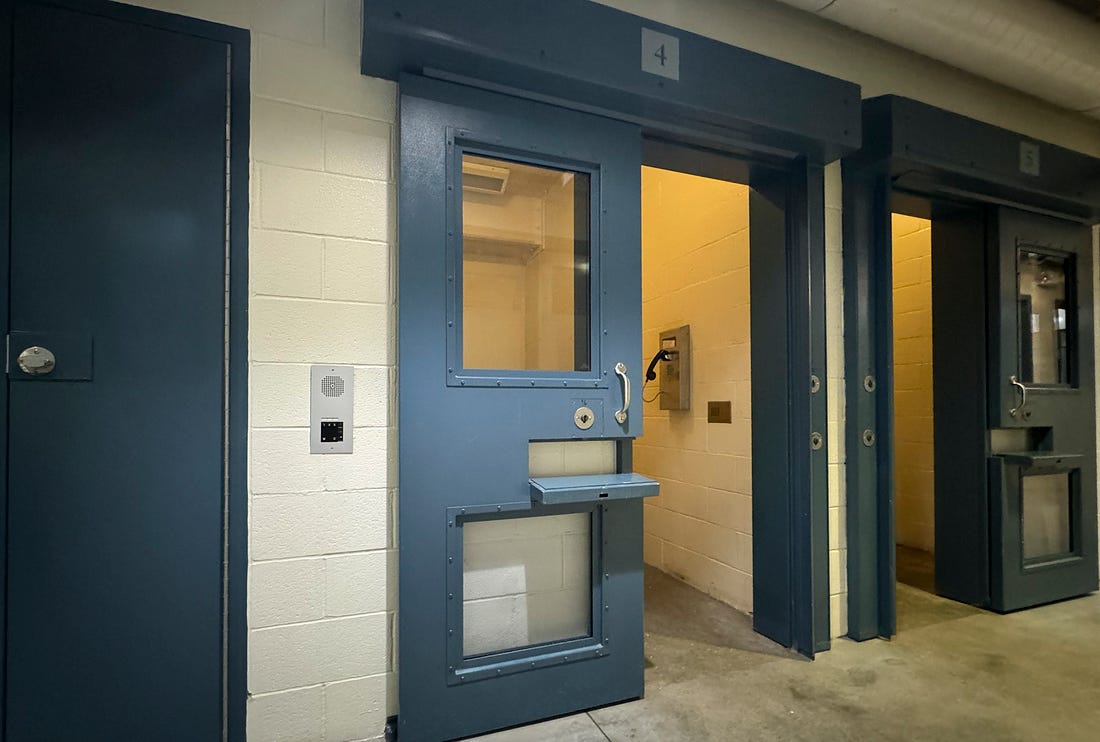|
 |
On Friday, I sent a special message to our free subscribers. It highlighted how Popular Information’s work shines a light on stories that powerful people would rather keep in the shadows, and impacts the national political debate.
For example, Popular Information first revealed that the Trump administration’s $20 billion bailout of Argentina benefited Treasury Secretary Scott Bessent’s former colleague and personal friend, hedge fund billionaire Robert Citrone. This story has been picked up by most major political publications — from The New York Times to The New Yorker to CNN — and has changed public perception of the motivation behind the bailout.
We are planning even more ambitious reporting like this, but it is time-consuming and expensive.
Although Popular Information has 535,000 readers, only a small percentage support our work as paid subscribers. We could put up a paywall to encourage more people to pay, but we believe access to crucial information shouldn’t be limited by income.
To keep Popular Information available to everyone, we’ve set a new goal of 400 new paid subscribers, and we’re close.
To help get us over the top, we’re offering 20% off subscriptions for one more day.
If you value this work and can afford $4.80 per month or $40 per year, please help Popular Information continue to fight for the truth.
Last week, the Federal Communications Commission (FCC) voted to allow prison telecommunication companies to charge incarcerated people up to 83% more for phone calls. This permanent change comes after a July FCC decision to temporarily raise the maximum rate that telecom companies can charge inmates per minute.
In 2024, the FCC established a cap of $0.06 or $0.07 per minute for inmate phone calls, depending on the size of the prison or jail. This followed the passage of the Martha Wright-Reed Just and Reasonable Communications Act of 2022, which clarified the FCC’s authority to regulate prison communication costs. The act was named for a grandmother who advocated for price caps after spending more than $100 per month to call her incarcerated grandson and sometimes skipped medication payments to afford the bill.
Staying connected to family through phone calls and visitation has been shown to decrease the likelihood that a person will commit another crime when they are released from prison. Before the 2024 rate caps were implemented, inmates reported having to choose between paying for phone calls or other essential goods, like personal hygiene products and shoes.
Now, the FCC has permanently repealed the 2024 rate caps, which would have saved incarcerated people and their families nearly $1 billion per year. While the new rate caps ($0.10 to $0.18 per minute) remain lower than the caps before the Martha Wright-Reed Act ($0.14 to $0.21 for phone), the cost will still be significant for inmates. The caps for video calls have also increased significantly, from $0.11 to $0.25 per minute under 2024 rules to $0.18 to $0.41 under the new rules.
Why is the FCC raising rate caps?
In its announcements of the July decision and the recent vote to make that decision permanent, the FCC provided two justifications for raising the caps on phone call rates.
First, the FCC said that the lowered rate caps were creating “unacceptable risks to safety and security.” However, the FCC did not actually provide any examples of lowered price caps leading to safety incidents. Instead, the FCC said that it was responding to a complaint from a prison telecom company called NCIC, which claimed that the lowered caps did not sufficiently cover the costs of necessary safety measures for prison phone services, without specifying what safety measures were required.
The FCC also claimed that the lowered caps had led to “reductions in the availability of calling services.” Yet the FCC has only cited one example of a prison or jail ending phone call access due to the lowered rates.
In March, the jail in Baxter County, Arkansas announced it would end phone call services, which the FCC claims was due to lost revenue from the lowered rate caps. However, the Baxter County sheriff blamed a ban on site commissions, or kickbacks, enacted in 2024. Site commissions are a percentage of revenue from phone calls that prison telecom companies pay to the operator of a prison or jail. The Baxter County jail ended phone services because it was no longer able to profit from the calls.
The FCC provided no evidence that lowered rate caps directly led to the cancellation of phone services at prisons and jails.
The uncertain future of kickbacks
While the FCC voted to raise the rates for prison phone calls, the commission is reinstating a ban on kickbacks and ancillary fees.
In July, Popular Information reported that the prison industry directly benefited from the money spent on prison phone calls, as prison operators were offered kickbacks to secure lucrative contracts with companies providing prison phone services. Prison operators received “almost 48%” of the revenue from prison phone calls as kickbacks, according to a 2014 press release from the Human Rights Defense Center. Prison operators were, in turn, incentivized to award phone contracts to companies charging incarcerated people exorbitant fees, as they were rewarded with larger kickbacks.
Private prison companies no longer disclose how much money they make in kickbacks, but the New Times Broward-Palm Beach
